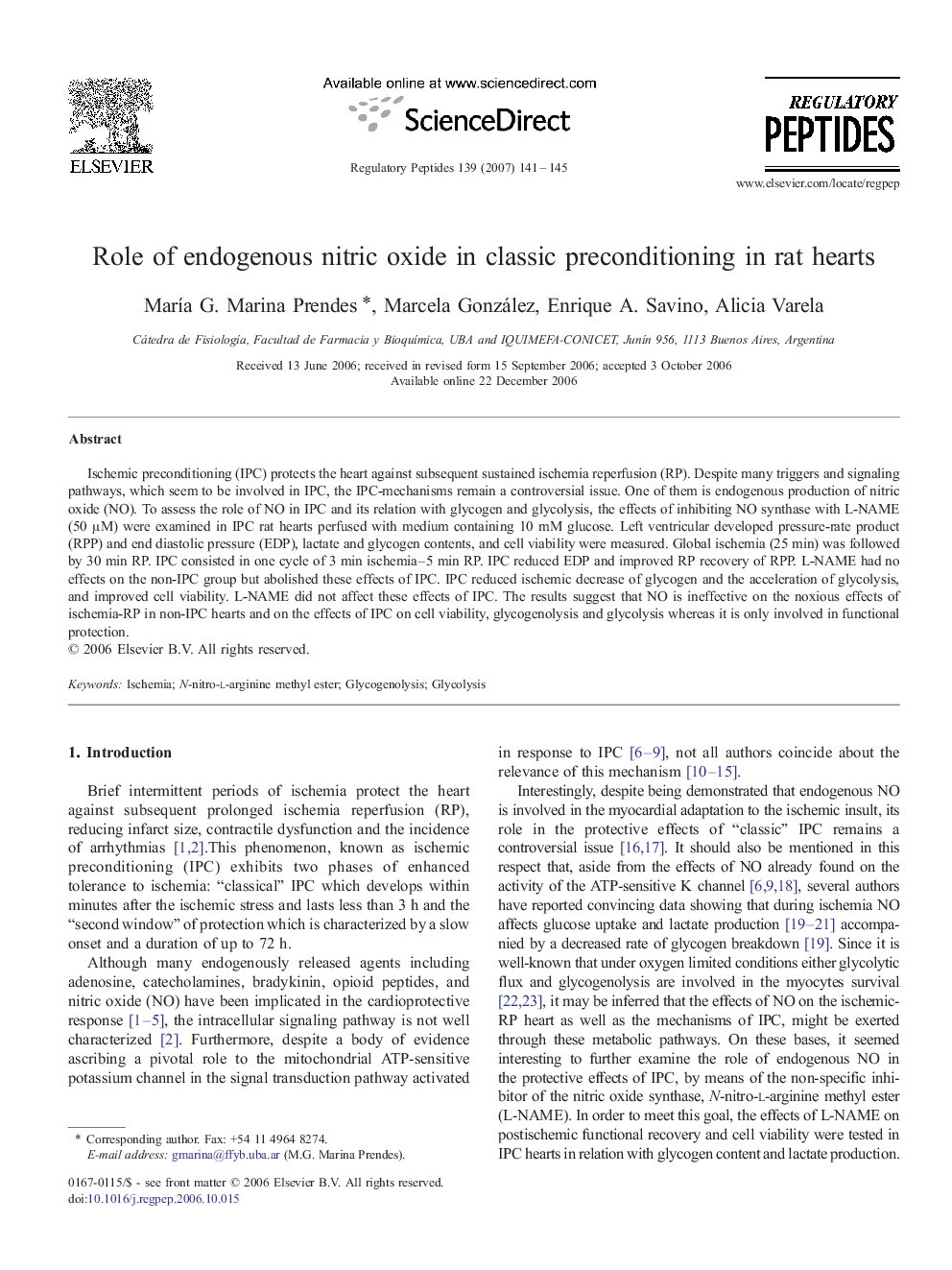| Article ID | Journal | Published Year | Pages | File Type |
|---|---|---|---|---|
| 2023453 | Regulatory Peptides | 2007 | 5 Pages |
Ischemic preconditioning (IPC) protects the heart against subsequent sustained ischemia reperfusion (RP). Despite many triggers and signaling pathways, which seem to be involved in IPC, the IPC-mechanisms remain a controversial issue. One of them is endogenous production of nitric oxide (NO). To assess the role of NO in IPC and its relation with glycogen and glycolysis, the effects of inhibiting NO synthase with L-NAME (50 μM) were examined in IPC rat hearts perfused with medium containing 10 mM glucose. Left ventricular developed pressure-rate product (RPP) and end diastolic pressure (EDP), lactate and glycogen contents, and cell viability were measured. Global ischemia (25 min) was followed by 30 min RP. IPC consisted in one cycle of 3 min ischemia–5 min RP. IPC reduced EDP and improved RP recovery of RPP. L-NAME had no effects on the non-IPC group but abolished these effects of IPC. IPC reduced ischemic decrease of glycogen and the acceleration of glycolysis, and improved cell viability. L-NAME did not affect these effects of IPC. The results suggest that NO is ineffective on the noxious effects of ischemia-RP in non-IPC hearts and on the effects of IPC on cell viability, glycogenolysis and glycolysis whereas it is only involved in functional protection.
